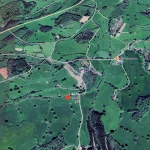£6m Boost to Help Develop Future UK Communications Tech

The Engineering and Physical Sciences Research Council (EPSRC), which forms part of UK Research and Innovation (UKRI), has today secured £6 million of funding to help with the research and development of future communication systems including 6G (mobile broadband), faster internet access and cloud computing etc.
Jane Nicholson, EPSRC’s Director for Research Base, said: “Digital communications infrastructure underpins the UK’s economy of today and tomorrow and these projects will help support the jobs and industry of the future. Everybody relies on secure and swift networking and EPSRC is committed to backing the research which will advance these technologies.”
The EPSRC has split the investment and allocated £2 million to each of three different “initial exploratory [research] platforms“. We don’t get a lot of detail, but you can find a summary of the three platforms (projects) below, and each is expected to run for about three years.
Advertisement
Platform 1: Network of Networks
Led by Professor Harald Haas, from University of Strathclyde, Glasgow’s Electronic and Electrical Engineering department and Director of the LiFi Research and Centre
TITAN is a consortium of 17 universities which lead research in crucial segments of future communication networks and supported by four associate partners, namely the Digital Catapult, the Bristol Digital Futures Institute (BDFI), the Compound Semiconductor Centre (CSC) and the Fraunhofer Centre for Applied Photonics (CAP). The consortium aims to establish an open and productive platform for research collaboration and engagement across a large number of academic and industrial partners supported by a management structure which enables a flexible expansion of the platform if necessary. Together, the partners will conduct unique and highly transformative research on the interfaces of classic communication network elements to achieve the seamless, open and fully integrated network of networks.
Professor Haas said: “While connectivity remains a key driver for economic growth, the global race for technologies that underpin future 6G and the metaverse has begun. I am thrilled to be working with more than 40 academic colleagues to jointly advance the diverse communication network technologies towards a fully inter-operable open network of networks. I am also delighted to work with future industry partners to shape standardisation of communication networks and to translate broad research excellence into creating wider industrial impact.”
Platform 2: Wireless and Wired Systems and Spectrum
Led by Professor Dominic O’Brien, Professor of Engineering Science, University of Oxford
The Hub brings together eight teams from the Universities of Belfast, Bristol, Cambridge, Oxford, Southampton, Strathclyde, Imperial College and UCL, with leading expertise in a wide range of wired and wireless technologies, in order to address the challenge of providing high-speed, low-latency access to internet services for future fixed and mobile users. Our objectives are to advance technical capabilities, build a strong engagement between academia, industry and policy makers, and train researchers. Communications systems research is a critical area that underpins the whole future digital society and forms part of a national ambition around world-class communications systems and technology. Sustained investment in future communications systems is a vital step in achieving this ambition.
Professor O’Brien said: “Reliable, high-speed communications is a key part of our national infrastructure. Our Hub partners are looking forward to working with the other Hubs, Industry and Government to help address the challenge of creating the future generations of these vital systems.”
Platform 3: Cloud and Distributed Computing
Led by Professor Julie McCann, Vice-Dean (Research) for the Faculty of Engineering, Imperial College London
The CHEDDAR: Communications Hub for Empowering Distributed clouD computing Applications and Research will drive research and networking across the UK academic community, to:
➤ Develop innovative collaboration mechanisms to engage pockets of excellence around the UK and build a cohesive research ecosystem that nurtures ECRs and emerging blue horizon ideas.
➤ Inform the design of new communication surfaces that cater to emerging computing capabilities (e.g., neuromorphic, quantum, molecular), key infrastructures (e.g., energy grids and transport), and emerging end-user applications (swarm autonomy, air-service on demand) to answer problems that we cannot solve today.
➤ Create integrated design of hierarchical connected human-machine systems that promote secure learning and knowledge distribution, resilient capabilities, sustainable operations, trust between human and machine reasoning, and EDI aware accessibility. – Co-develop regional case studies that reflect the diverse challenges faced by different industries and societies across the UK.
Professor McCann said: “During the Pandemic we came to appreciate the great work of the medical sciences, meanwhile quietly, communications technologies were supporting us for work and providing social lifelines. Looking forward, we have new ways of working using AI, neuromorphic and quantum computing and these have different demands on communication networks, and indeed networking is changing with the various technologies that make up 6G etc., these hubs will bring all this together so that it really works for us all.”
Mark is a professional technology writer, IT consultant and computer engineer from Dorset (England), he also founded ISPreview in 1999 and enjoys analysing the latest telecoms and broadband developments. Find me on X (Twitter), Mastodon, Facebook, BlueSky, Threads.net and Linkedin.
« ISPA Launch Hunt for the Best UK Broadband Providers of 2023
CityFibre UK Starts £17m Loughborough FTTP Broadband Rollout »






















































That’s £6m down the drain then.
Obviously not enough opportunities for MP’s and they’re mates to back pocket the funding, otherwise it’d be a decent investment.